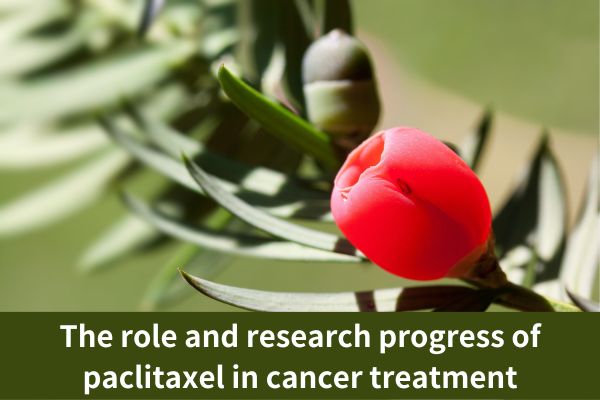Cancer,as a complex and diverse disease,has always been one of the hot spots in the medical field.Among many anti-cancer drugs,paclitaxel has attracted much attention due to its unique molecular structure and anti-tumor activity.This natural diterpenoid alkaloid is mainly derived from the plants of Yew tree,and its unique mechanism of action has made it achieve remarkable achievements in the field of cancer treatment.
1.Mechanism of action
The main mechanism of action of paclitaxel focuses on the regulation of cell mitosis.By binding to tubulin,it hinders the polymerization and stabilization of microtubules,thus inhibiting the progression of cell mitosis.This mechanism of action prevents cancer cells from undergoing normal mitosis,ultimately leading to apoptosis and inhibiting tumor growth.
2.Research progress
1.Molecular biology and cell biology
With the development of molecular biology and cell biology technology,the research on the mechanism of paclitaxel has made new progress.The researchers explored the role of paclitaxel at tubulin binding sites by means of molecular experiments,thus providing a theoretical basis for the design of more effective derivatives and drug combinations.
2.Clinical trials
At the clinical level,paclitaxel has shown a wide range of applications in the treatment of various cancers.The clinical trial not only validated the efficacy of paclitaxel monotherapy,but also investigated the possibility of its use in combination with other anticancer drugs.On the one hand,this broadens the treatment options,on the other hand,it also provides a new direction for individualized treatment.
3.Anti-drug resistance research
However,with the advancement of the clinical use of paclitaxel,some patients have shown a weakening of its therapeutic effect,mainly manifested by the emergence of drug tolerance.Researchers are conducting in-depth research on the mechanisms of resistance to drug resistance,looking for new ways to reverse or slow down resistance.
4.Future outlook
With the in-depth study of the mechanism of action and clinical application of paclitaxel,our understanding of cancer treatment will be more comprehensive.Future research directions may include optimizing treatment regimens,deepening mechanism analysis at the molecular level,developing more precise targeted drugs,and strategies to improve patient quality of life.At the same time,protecting yew tree resources and promoting the sustainable use of paclitaxel will also become an important direction of research to ensure its long-term sustainable application in the field of anti-cancer.
In this era of continuous progress,the research on paclitaxel offers new hope for cancer treatment,but also calls on us to focus on the sustainable use of resources while exploring science.
Note:The potential benefits and applications presented in this article are derived from the published literature.
Post time: Jan-10-2024
